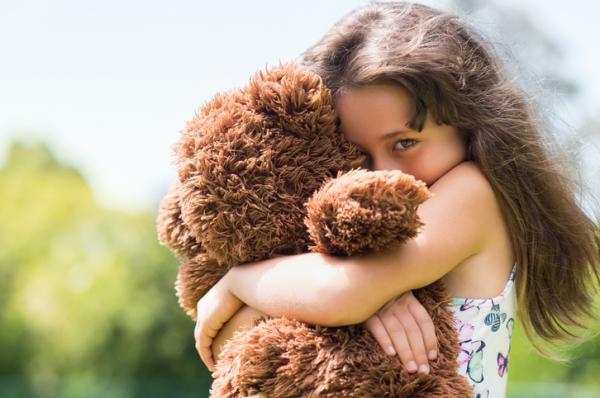
A shy child has high levels of anxiety and inhibition when he has to interact with other people or in novel situations. A shy child becomes nervous if he feels that he is “exposed” to the gaze of others, such as when he meets a new person or has to speak in front of other children. He prefers to see how others play than to expose himself and participate in the game. Most children are shy at some point in their lives when faced with new situations, and this is normal. However, there are other children who have a degree of shyness that interferes with their life. Children who are extremely shy can become shy adults, significantly interfering with their lives. In cases of extreme shyness, professional treatment is recommended. In this Psychology-Online article, we explain the causes and treatment of extreme shyness in children.
Shyness is extreme when it is constant and decreases the quality of your child's life in different ways, that is, prevents the correct development of the child in different areas of his life:
- Reduce opportunities to develop or practice social skills.
- Few friends.
- Decrease their participation in fun or rewarding activities that require some type of interaction with others, such as sports.
- Increases feelings of loneliness and low self-esteem.
- Cut back on your activities out of fear of being judged.
- High levels of anxiety.
- You may blush, shake, and stutter in situations that require exposure to others.

When shyness in a child begins to interfere in her life and does not seem temporary, it is advisable to go to a specialist. Some options of treatment to overcome childhood shyness They are:
- Relaxation strategies: Learning to relax will help your child to reduce his anxiety and can give him a sense of control that will allow him to deal more appropriately with the situations that cause this discomfort.
- Social skills training: The objective is for the child to learn the social skills necessary to function in their day-to-day life. With this training, he will be prepared and new situations will no longer be so, feeling more secure and with greater control capacity.
- Exposition: they can be used in combination with social skills training. It consists of the child exposing himself to the social situation to put into practice the acquired skills and incorporate new ones to her repertoire.

There are some tips that can help you encourage your child to overcome extreme shyness. Each case is different and depends on the characteristics of the child and his circumstances, but here are some suggestions:
- Share with your child some coping strategies that you have learned over the years to overcome shyness and practice some of these strategies with your child to figure out which one is right for their his situation.
- Tell your child about the benefits of not being shy. You can give it examples from your life.
- Encourage extroverted behaviors by reinforcing him when faced with challenging situations such as meeting a new friend.
- Try to set goals with your child. It is important that the objectives are gradual and that they reinforce one by one and increase their complexity.
- Deliberately organize new situations for your child in which he can put into practice the objectives achieved and be a support during the process.
- Make sure your child is prepared for the situation you pose and reinforce him with the skills acquired.
In the following article, you can see more tips on how to help a shy and insecure child.
This article is merely informative, in Psychology-Online we do not have the power to make a diagnosis or recommend a treatment. We invite you to go to a psychologist to treat your particular case.


